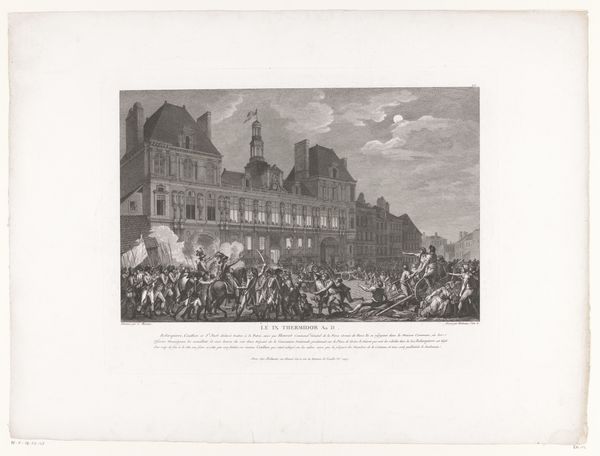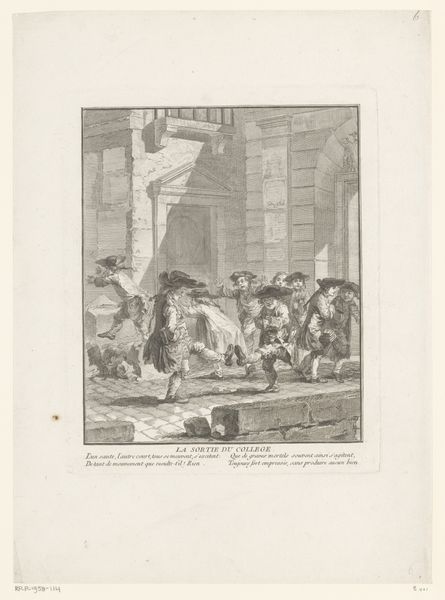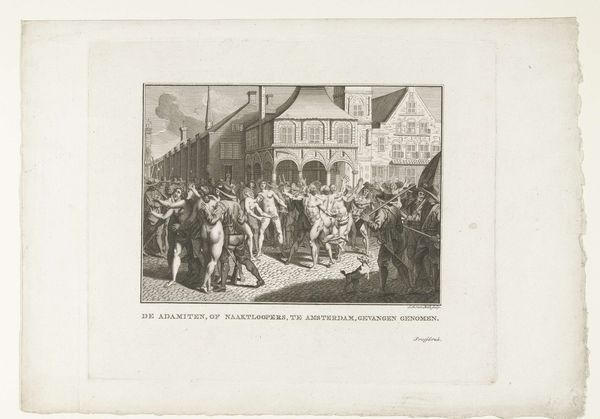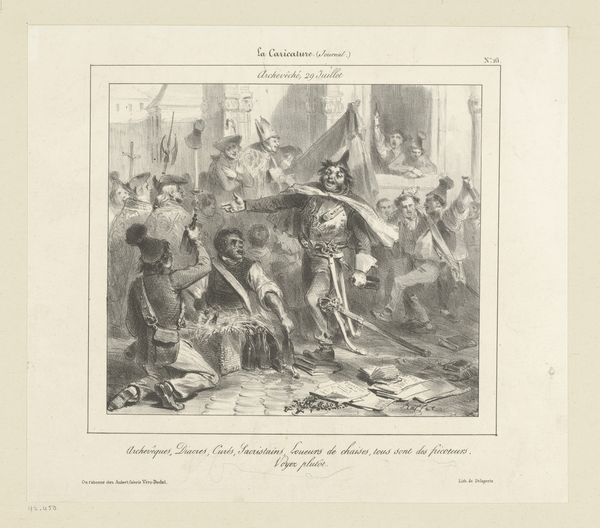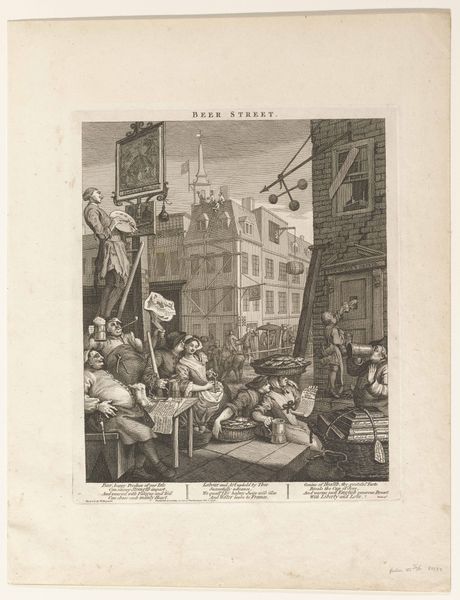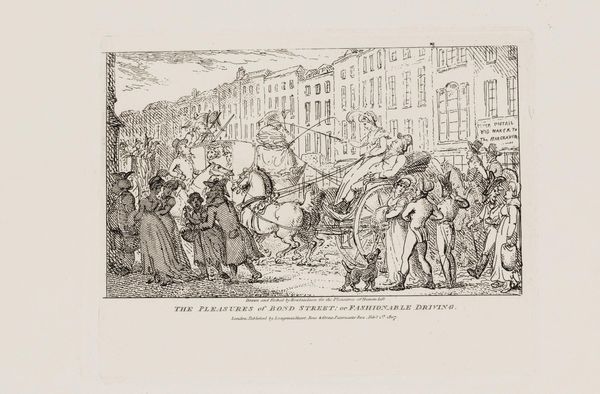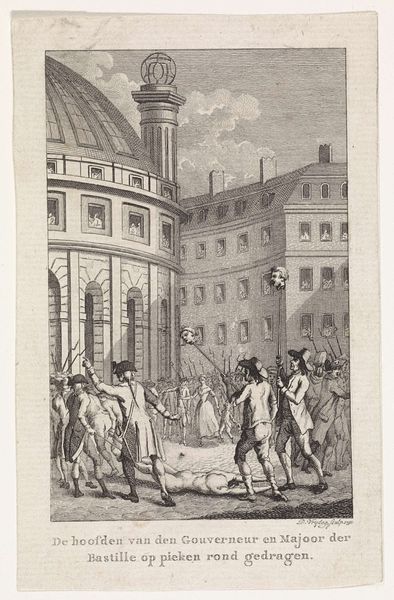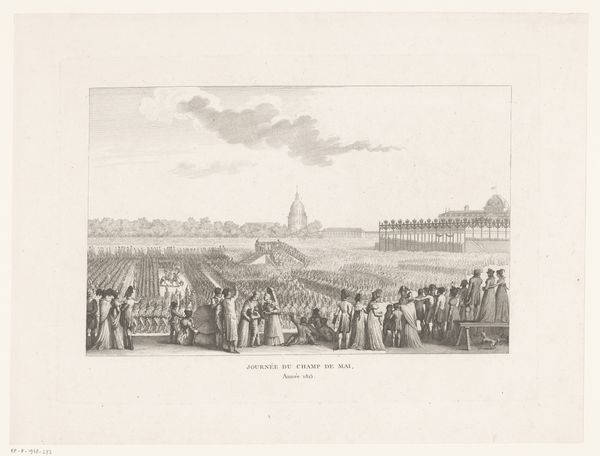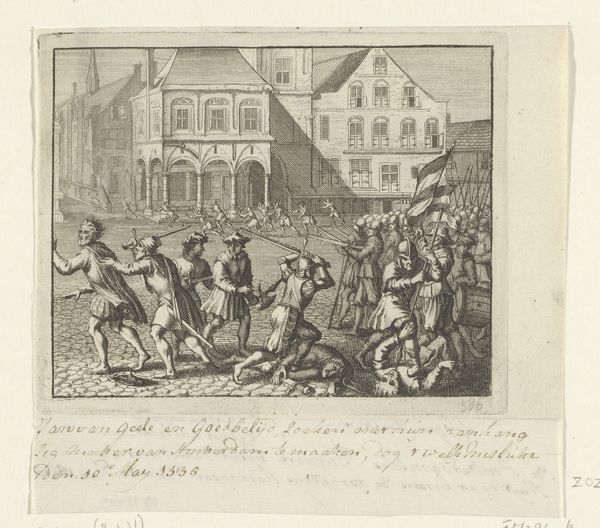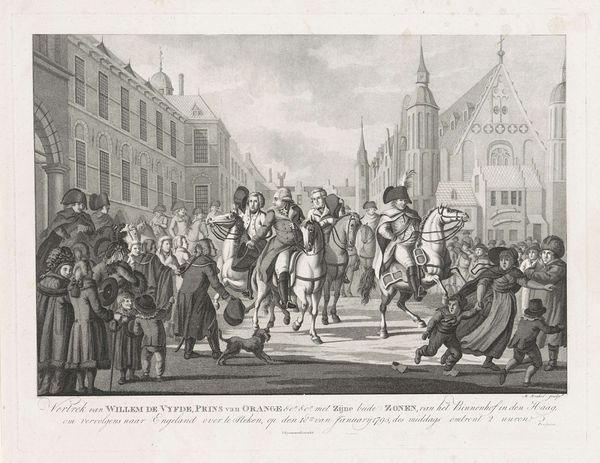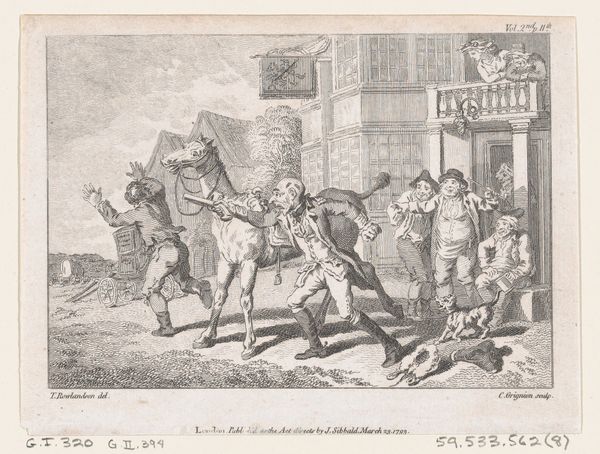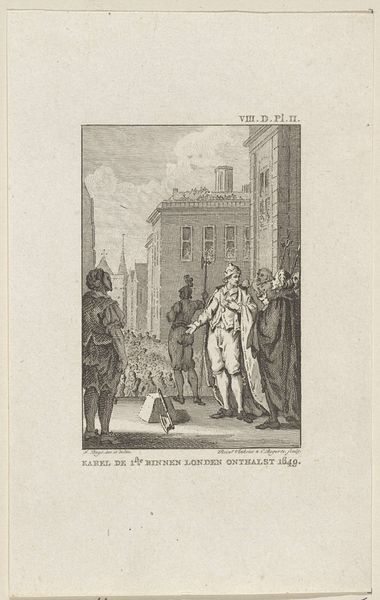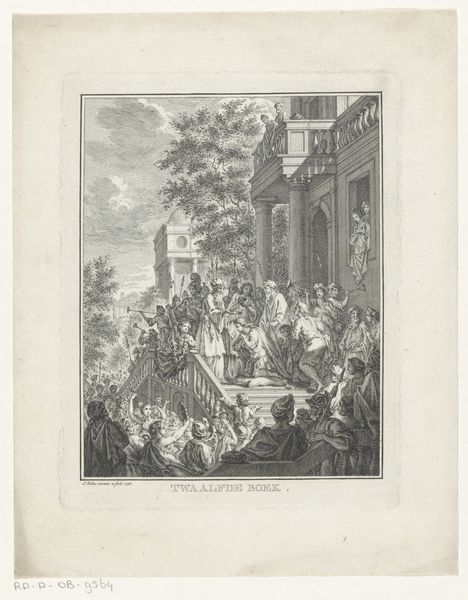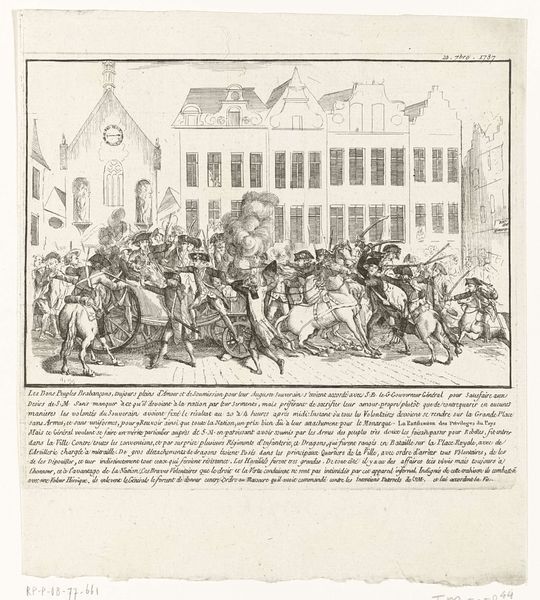
print, engraving
# print
#
romanticism
#
19th century
#
cityscape
#
history-painting
#
engraving
Dimensions: height 279 mm, width 338 mm
Copyright: Rijks Museum: Open Domain
Curator: Here we have "Gevecht bij de Tuilerieën tijdens de Julirevolutie," or "Fight at the Tuileries during the July Revolution," a print made circa 1830 by François Alexandre Hazé. Editor: It's a scene teeming with… well, barely controlled chaos! Look at the posture of the men in arms. It's more like a bar fight than a revolution, I can almost smell the sweat and gunpowder from here. Curator: I see what you mean. Hazé captured this raw immediacy with his engraving. I'm curious about his artistic choices—to portray it with this technique. Editor: Well, an engraving means multiple copies. This event becomes reproducible, distributed. What does that do to the *idea* of revolution, of rebellion? Making it tangible through accessible material production—ink, paper, labor. Revolution as a consumer good, almost! Curator: That's a really interesting take! It complicates the romantic ideal, doesn't it? This swirling drama is flattened into an object, handled, maybe discarded after its use. You almost lose sight of the emotional current. What was it like to stand on that river bank as Hazé must have. The artist might use his vision and interpretation, and here he has made it less emotionally immediate to viewers like you or I today. Editor: It’s those details of process that are so important to consider. Hazé's decisions in rendering flesh, clothing—they speak volumes. Notice the contrast of the architectural rigidity with the more rough presentation of people. Highlighting the friction, you could say, of social classes coming together on that day. I suppose what the consumer/audience really did was, bought a moment that mattered greatly. Curator: It’s interesting how an artwork can transform, based on shifting value systems and focus and attention. Thank you for pointing this all out! Editor: Indeed. I can't help but appreciate how the physicality of this engraving complicates narratives. We should never be afraid to handle these stories like this and give consideration to these processes of communication, I always like to walk away learning from tangible and new historical details.
Comments
No comments
Be the first to comment and join the conversation on the ultimate creative platform.
